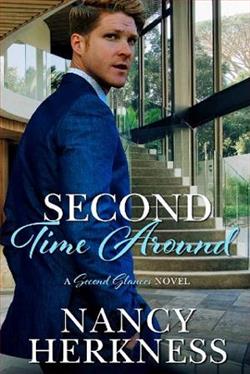Page 43 of The Enduring Universe
Eskayra grunted again, but did not disagree. The citizens ofthe landed ashrams were used to adaptation, with lulls and flights dictating the frequency and shape of their homes. Yet something had changed ever since Irshar had become the last ashram of humanity. The grounding in the jungle had created a desire for stillness, and even the damage to Irshar from Iravan’s war could not contend with that.
For months, the citizens had begun taking ownership of their lives, finding different purposes and occupations than they’d been allowed in an airborne ashram. They’d found a chance to think of themselves as people with control, beyond architect measures, for the first time presented with a world where the architecture did not change, and architects were not superior.
In a strange way, Ahilya had achieved what she’d set out to do—and now with the vriksh holding the Virohi, the citizens had gained more freedom. They didn’t need even Ahilya anymore to stabilize their structures. The council made gentle suggestions about the new city, but Ahilya had heard rumors of mistrust, and a part of her could not blame the citizens. These were people, many of them from Nakshar, who had lived during the Conclave in architecture that had denied them space, livelihood, occupation, and health. Of course, they did not trust the council.
Besides, the new city was built with an Ecstatic’s power. Iravan’s architects spoke each day to the citizens, spreading word of his benevolence and agenda, but skepticism regarding the Garden still lingered. People had refused the invitation to live in the Garden. They were not going to forgive Ecstasy so soon—not when Ecstatics had abandoned them and behaved like their enemy for months. The new city was as terrifying to them as Iravan, and gifts from the Garden were circumspect. It was why the council distributed sungineering equipment carefully, requesting Dhruv to build his inventions here in Irshar instead of transporting them from the Garden.
The thought made Ahilya sad. Once she and Iravan had campaigned for the right of Ecstatics to live as equals. They had thought to create a world where earthrages could be controlled, and airborne ashrams and newer ones in the jungle comprised of the Ecstatics could live in harmony—a vision of equity for all kinds of people, no matter where they lived. Now hostilities still ran rampant between the two nations, despite everything people knew. In some ways, moving to the new city, which had Iravan stamped all over it, would be just as bad as the Garden. Perhaps the citizens had the right measure of it.
“We need to make the city ours before we ask them to move,” Ahilya said. “Some way to show them that it is not Iravan’s, nor the council’s. This close to the Garden, and under the thumb of the councilors…”
Eskayra’s lips lifted in a small smile. “I’m trying my hardest, my dear. That man’s design is sound, I will agree, but in true architect fashion he seems to have thought of total safety without providing any space for people to spend their days. The citizens here have learned to rely on themselves. We cannot take that away from them, and my builders are making accommodations for their way of life.”
It would be a compelling argument for Eskayra to make, perhaps more than any other rationale of safety.
The citizens had always lived one earthrage away from danger. That was the nature of their lives in an airborne city. Lack of safety was a known variable. It was control they’d been denied, unable to choose their leaders or their professions when survival was at risk. Now, with the end of the earthrages, Umang was a citizen scientist, part of Eskayra’s crew. Reniya and Vihanan maintained roads, a job which had once been the province of architects. Tariya had begun a nursery within the infirmary, caregiving for the children who had been orphaned in the Conclave’s tumultuouscrash. Laksiya, who had once been a Senior Sungineer of Nakshar, had evidently taken up chronicling the experiences of the survivors in a book she intended for history.
Changes were already occurring in ways of life, architects and non-architects reversing their roles. If Eskayra changed the structures of the city to account for this, the new city might be met with excitement not skepticism.
“If we migrate everyone to the new city,” Eskayra said, “will that make it easier for you to do what you need to do?”
Ahilya’s job was to extract the Virohi. What difference did it make if the citizens lived in this new city or in Irshar? She had set herself an impossible task. For days now, she had tried to commune with the Virohi, yet she had lost her chance by losing her nerve; she should have talked to them on that first night in the infirmary. Then, she had seen them as a dark, huddled mass that looked like herself. Now, no matter how she searched, she could not see them. They were still there in the vriksh, she knew. Every now and then, their weeping echoed in the Etherium. But they were hiding from her, their swarm flying to all corners, diffusing, as if they knew of her promise to commit genocide. She could not hide her intention from them. They were too closely intertwined. The heartpoison bracelet Iravan had made tightened around her wrist.
Eskayra touched her hand lightly, and Ahilya met her gaze. “He has been in the city, too,” the Senior Builder said. “He has seen what I’m doing.”
Ahilya looked at her sharply. “Did you speak with him?”
“Only to exchange notes. He has some thoughts about what could make things more useful for the citizens.” Eskayra shrugged. “I would be a fool not to listen to his perspective. He did build the city, after all.”
It was an unsettling thought—Iravan and Eskayra speaking witheach other, without Ahilya. Did they ever acknowledge their history with her, or their present? What did they make of each other? Ahilya knew Eskayra’s opinion of Iravan, but did Iravan know of Esk’s proposition to Ahilya? She imagined it, the two of them speaking to each other in forced and polite tones, ensuring only to touch on relevant business at hand. She thought of Eskayra in her mud-stained clothes, and Iravan in his pristine black, silver tattoos running over his skin. The image was so bizarre—a mix of her past and future intertwined, that Ahilya shook her head to dispel it.
“You did not mention this to Airav,” she said.
“There would hardly be anything to report,” Eskayra said, making a face. “I do not see that man often, but there’s a reason he made the city in that location. At first, I thought it was because he noticed our expedition equipment there, but he has been around the jungle surrounding the city. He’s looking for something.”
The yakshas, Ahilya thought.
Dhruv had already let slip that Iravan was away from the Garden for long days. It had made the Senior Sungineer irritable, the administration of the Garden and all communication with Irshar left up to him. He had done the best he could, but Ahilya had heard him complain to Pranav how much of it would be futile if Iravan came in and declared those decisions pointless, changing them on a whim. Ahilya knew how that must have irked Dhruv, but she had not said anything. The days they had confided in each other had long since passed, and she was not interested in playing political games of the council anymore, desiring to create a rift between the Garden’s two leaders.
“My dear,” Eskayra said softly. “Have you given anymore thought to what I said?”
Ahilya studied the woman, the brightness of her eyes, the steady, stable, secure gaze. Once, Iravan had looked like that.
She shook her head. “You don’t really want to marry me, Esk. You know you don’t.”
“I wanted to before I left Nakshar all those years ago,” Eskayra said quietly.
“But you left,” Ahilya said before she could take it back. Eskayra’s face fell, and she hurried to shrug a shoulder. “I don’t blame you—that’s not what I mean. Only that perhaps it was for the best.”
She could not explain it, but despite everything that had happened, Ahilya could not bring herself to imagine a life where she had never met Iravan. Who she was now was tied so irrevocably to him. With Eskayra, Ahilya had been one person alone. With Iravan, she had become more—evolving herself as Iravan changed and evolved through his experiences. The Ahilya she was today—damaged, experienced, capable of compassion even to the Virohi—was because of him. Would she have outgrown her hostility of the architects, become a councilor, communed with creatures of the universe, all without him in her life? Iravan was tied to her, and he had shaped her as much as she had shaped him. They had grown around each other like two tree trunks, their roots so entangled, their canopy so enmeshed, that neither would ever really be able to separate from the other.
Her thoughts must have shown on her face. Eskayra tipped her chin up. “You are free of the Virohi now,” she said. “You could be free of the past too. In the new city, we can build something new together.”
Could they? After everything Ahilya had given to the Virohi and to the ashrams? After everything she had given to Iravan? What was left of her, now?
“I will never be free of my past,” she said softly. A wan smile crept on her face. “I am anarcheologist.The past is my home.”
Eskayra did not return her smile. “You still want to save him, don’t you? Save him from himself?”















